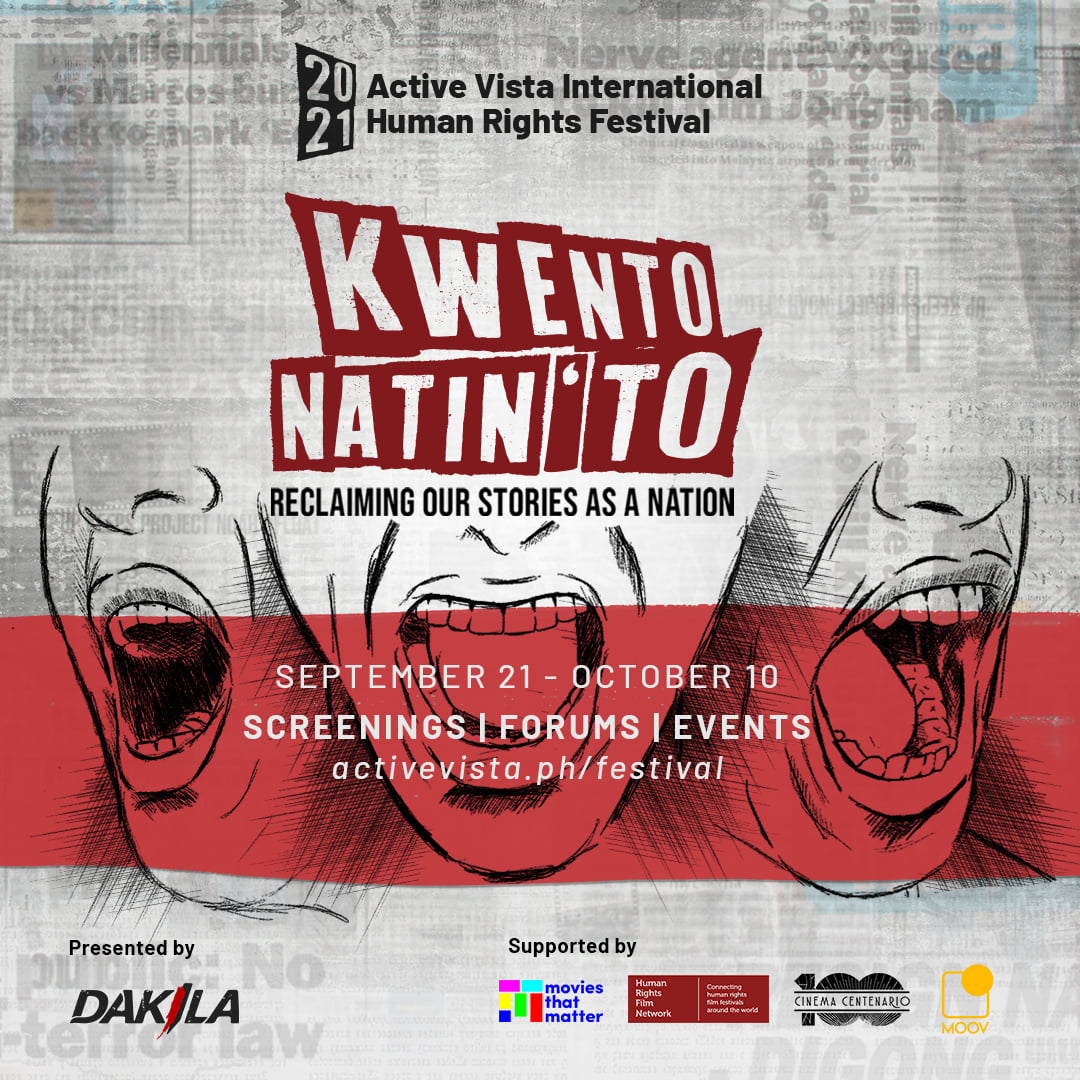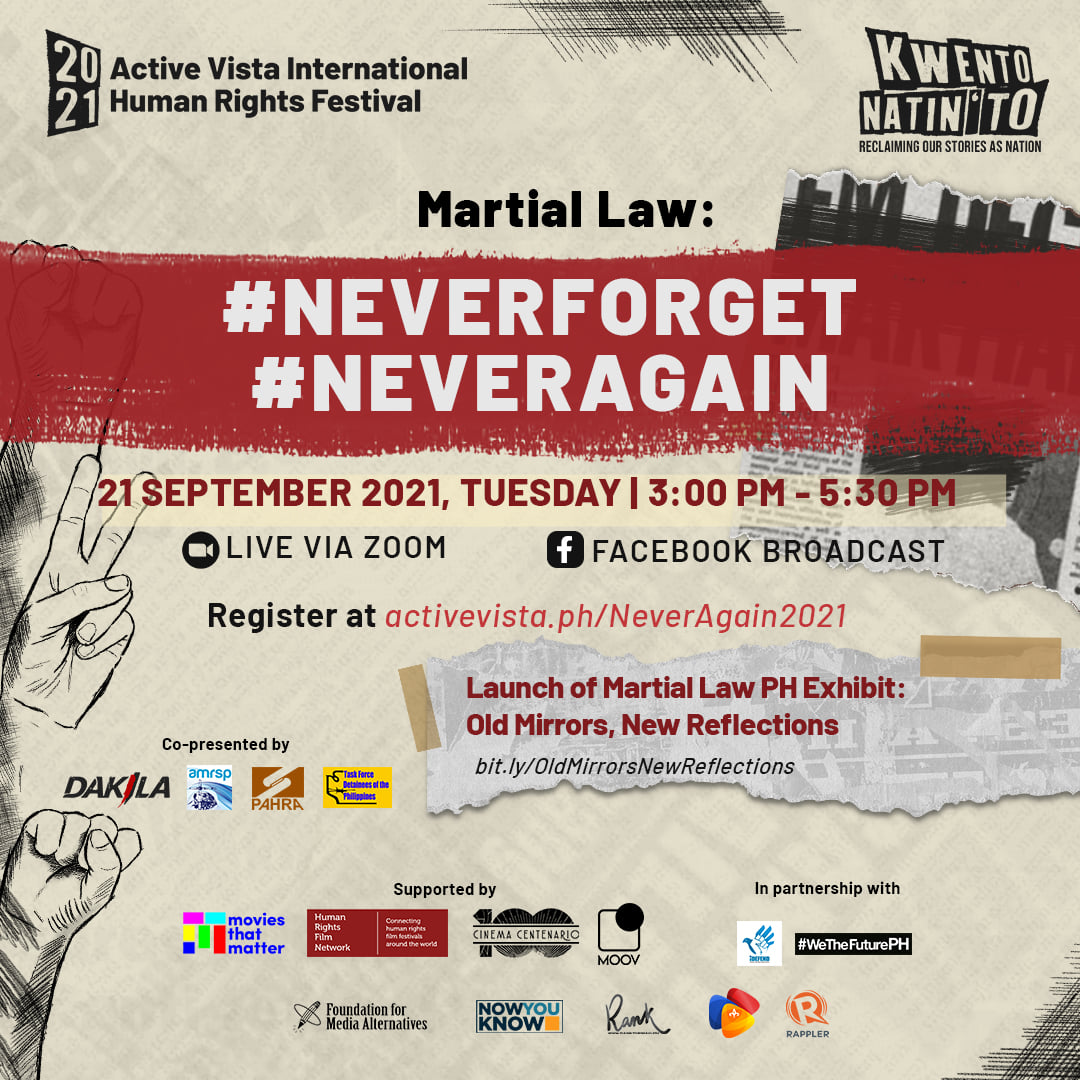PHILIPPINES—The Internet is such a powerful thing. Now, more than ever, in the midst of an actual “digital era”, when all we can do is rely on the things you read, scan, watch, and do online to continue life as we know it, we have seen how the power of the worldwide web has been used as a tool to spread good, and of course, as is expected, the bad. Which is why in the course of recent years, the term “fake news” has instantaneously become an addition to the lexicon of the everyday Filipino, as we have seen the double-edged nature of the power of the Internet and all that it has to offer, including, but not limited to, social media to maliciously develop, fabricate, plant, and propagate disinformation for the benefit of one party.
In the past week, the online world has, yet again, seen an uproar—unearthing polarized opinions on what one attempt at an online talk show brought to the fore, with an opportunity to revise what history books and accounts from victims of the Martial Law era have already proven factual.
It’s still quite baffling to encounter people who believe that a dictatorship founded on abuse, theft, and blatant disregard for human rights is anything but atrocious and unforgivable. And it’s even more incredibly disturbing to see this behavior from celebrated local media icons who have so much influence over their fan bases and the general public, allowing themselves and their reach to be weaponized for such known, but alarmingly effective, tactics.
This is precisely the case with Toni Gonzaga, who the Internet has been berating since the start of the week because of her latest Toni Talks episode with son of the late President Ferdinand Marcos, and former senator and candidate for Vice President, Bongbong Marcos.
Titled “The Greatest Lesson Bongbong Marcos Learned From His Father”, the interview, which runs just a little bit under half an hour, is the latest episode in Gonzaga’s YouTube series. Since it was released, Filipino netizens were up in arms—disappointed at her lending her platform to speak good of the Marcos Administration, and writing the title of the video as such.
Many claim that this adds to the initiative of historical revisionists, or those who aim to rewrite how we perceive and understand our nation’s history, and are enraged at Gonzaga’s active participation in it, hidden under the guise of “neutrality” and freedom of speech, laced with obvious attempts to “humanize” the person behind the atrocity.
At one point, Marcos was asked what his favorite part of the Malacañan Palace was, as if the “fluff” was enough to wash over the fact that lives have been lost during the period of time the subject was “fondly recalling”. What’s worse, on a more blatant note, Gonzaga asked how the subject would like “to introduce the surname Marcos to the new generation,” contributing largely to the revisionist’s battlecry to “move on” from Martial Law.
The Internet, of course, erupted in disappointment from concerned citizens, citing how irresponsible it is for the actress, host, and media personality to use her platform in such a way.
While fans of Gonzaga argue that this is her being neutral and allowing Filipinos to think for themselves by sharing several interviews with politicians from different backgrounds, it’s also notable that this particular interview was more focused on former President Marcos outside history’s depiction of him. This completely pushes aside (and ignores) his crimes to the nation and millions of Filipinos, and aims to shift his image from a merciless dictator to a wise father, while invalidating the plight of those who suffered in the hands of this dictatorial regime. When we all know that he was responsible for the brutal killing of so many activists, civilians, and billions-worth of debt and grafted money under the Republic of the Philippines name.
Understandably, Filipinos are angry. There’s real danger to one of the country’s biggest media personalities lending a platform to arguably one of the country’s most controversial families. Especially now as we near the national elections that will dictate our country’s fate in the next six years—an election which Bongbong Marcos has voiced his intention to join as an official candidate.
So, in case anyone out there needs reminding, the Philippines under the Marcos dictatorship was a dark, dark time. Here are some books, films, or content that you could go back to. These credible sources are stark reminders to #NeverForget:
Dekada ’70 (2002)
An iconic film often used as required material in school, Dekada ’70 is the movie adaptation of the novel by Lualhati Bautista (which you should also read!). It follows a typical Filipino family during the time of Martial Law, and depicts how national politics and society impacts each person in one’s home at the time.
Where to watch: iWant
Martial Law in the Philippines: Then And Now with Chel Diokno (2019)
Atty. Chel Diokno guested on an episode of the Woke Up PH podcast to talk about the Marcos dictatorship, and how we’ve been as a nation since then. In 45 minutes, the episode goes deep into the numerous human rights violations performed at that time, and the impact of former President Ferdinand Marcos being buried amongst our heroes.
Episode 4: A Martial Law Survivor’s Story (2020)
In this short but poignant episode of Rappler’s Kriminal: A crime podcast by Rambo Talabong show, survivor Trining Herrera Repuno recalls how her freedoms were abused when Martial Law was declared in the Philippines.
The Conjugal Dictatorship of Ferdinand and Imelda Marcos by Primitivo Mijares

If your preferred medium is through books, The Conjugal Dictatorship of Ferdinand and Imelda Marcos accounts the plans put in place by the Marcoses to declare Martial Law, and beyond. Written by Primitivo Mijares, the former president’s media adviser before he escaped out of the country in 1975, the book exposes the corruption and abuse by the regime from an inside source.
Mijares, in the first chapter of the book, expressed, “It is difficult to pinpoint the exact time when I did, but it must have been right after December 30, 1973, which was the final day of Marcos’s second and last term in office under the 1935 Constitution. At about that point in time, I began to realize that Marcos imposed martial law, not to save the country from Communist rebellion and to reform society, but to hold on to the presidency for life—and as a dictator.”
Where to read: “The Conjugal Dictatorship”, Digital Copy of the book from Ateneo De Manila’s Rizal Library
Respeto (2017)
In this trail-blazing Cinemalaya film, Treb Monteras brings the tale of an aspiring young rapper from the slums developing an unlikely friendship with a dissident poet who has long abandoned his art. The film is a juxtaposition of the current state of extrajudicial killings, particularly targeted at the dark, often disregarded sectors of society, to the horrors of the past from a Martial Law victim.
Where to watch: Respeto Movie official website
The Kingmaker (2019)
Acclaimed documentarist Lauren Greenfield takes a close, unflinching look at the former first lady, Imelda Marcos and her unrepentant, absurd perception of royalty and the vainglory that drove her and her family, to this day, to cling on their lust for power hidden under her delusion of being the savior the Filipino nation has long asked for.
The Guardian describes the film, in relation to the stolen public wealth that prompted the Filipino people to kick the dictators out, “This was the larceny that finally got them booted out of office and briefly exiled in the ’80s, but Imelda returned to her homeland as a widow, and is now trying to create a gruesome Marcos dynasty, led by her idiotic son, Ferdinand Jr (nicknamed “Bongbong”), and another daughter.”
ML (2018)
A film about a college student interviewing a Metrocom officer on Martial Law, ML takes on a literal and frightening approach to educating the youth about the atrocities done to Filipinos at that time. It’s quite difficult to watch, a visceral portrayal of the horrors of the Martial Law regime and the lasting impact it has left even to those who served as tools to spread such gruesome acts, but such is the reality for many of our countrymen under the Marcos rule.
PISAY (2007)
Eight teenagers from the Philippine Science High School deal with the ever-challenging life of a high school student, selected from the best and brightest from around the country, backdropped by the chaos of the Marcos regime in the 1980s. As the young, impressionable minds of the teenagers navigate the joys and pains of adolescence, amplified by the unsettling realities within the four walls of their classrooms, their school, and the nation under perilous waters brought by the reign of terror of the Marcos regime.
Pisay, ML, The Kingmaker are all included in the upcoming Frontline festival screenings of the upcoming Active Vista Human Rights Festival, set to commence right in time with the commemoration of the Martial Law declaration in the Philippines on September 21, via human rights organization DAKILA, with the theme “Kwento Natin ‘To: Reclaiming our Stories as a Nation”. Learn how by visiting the Active Vista and DAKILA Facebook pages.
With film screenings, forums, virtual performances, online exhibits, and workshops from September 21 to October 10, aptly, this 9th edition of the festival invokes the power of stories — imagined or real — in shaping history to change the narratives of our lives.


Other films you can seek out (and we hope can be made available and streamed) to remind you of the Martial Law atrocities:
Liway (2018)
Based on true, firsthand accounts of those who lived life inside a military camp, and as seen through the POV of Dakip, a young boy who saw his formative days up in a prison as the son of anti-Marcos dissident Cecilia Flores-Oebanda, better known as Commander Liway, the Cinemalaya film exposes the bleak state of the nation at a time when dictatorship and abuse of power were commonplace. We are later on enjoined in a revelation that the film’s child protagonist, Dakip, whose narratives and recollections of what growing up is like inside the constricting confines of his parents prison, were in fact, filmmaker Kip Oebenda’s personal experiences as a child of a political detainee.
Imelda (2003)
Documentary filmmaker Ramona S. Diaz paints an intimate portrait of controversial former first lady, Imelda Marcos, highlighting her ascent to power from a small town beauty queen to the second most powerful person in the land at the time of her husband’s decades-long reign. Documenting her experiences and perspectives on her affair with power, Marcos delivers, in so many ways, her displaced sense of entitlement of the Philippines, often displayed on her extravagance and flamboyance at the expense of the Filipino people.
At the end of the day, the revisionists will always “wisely” exploit the almost foolproof narrative of using one’s displaced sense of “freedom of speech” to defend Gonzaga’s interview. And yes, as big as her reach is, she will continue to reap the rewards of the video, what with a whopping number of views measuring at 4.5 Million as of this writing. Gonzaga, will continue to interview whoever she wishes to, dispel criticisms and call them as mere naysayers that do not factor in on her decision-making process in using her platform. That’s all true.
Independent cultural critic, writer, and founder of PAGASA-People for Accountable Governance and Sustainable Action said it best, “This is the thing with Toni Gonzaga: she doesn’t care. Because this is her, claiming credibility, insisting she has proven herself already and can now do what she wants. She forgets that she is part of nation. That her citizenship—the kind of citizen that she is—is dependent on this one nation that has cradled her, allowed her to earn her millions, and gives her this audience she earns from. That comes with the responsibility not to spread lies, at the very least.”
As someone who has millions of followers and subscribers, online and offline, Toni Gonzaga has a much more significant responsibility to her country’s values and socio-political culture and upbringing. As it is, whether it’s intentional or not, Gonzaga missed the mark on this one. It’s utterly irresponsible, and deeply concerning on how it will impact the youth’s already-hazy perception of Martial Law in the months to come.
But through all this, whether or not people like Gonzaga would come forward and take accountability for their actions, the power lies on your very able hands to educate yourselves with facts and equip yourselves with the truth and the conviction and resolve to safeguard the future and not let history repeat itself. We all have a responsibility to our nation and to each other to ensure that we’re all aware of the dark events that happened almost 50 years ago, and what we need to do to stop it from happening again.


